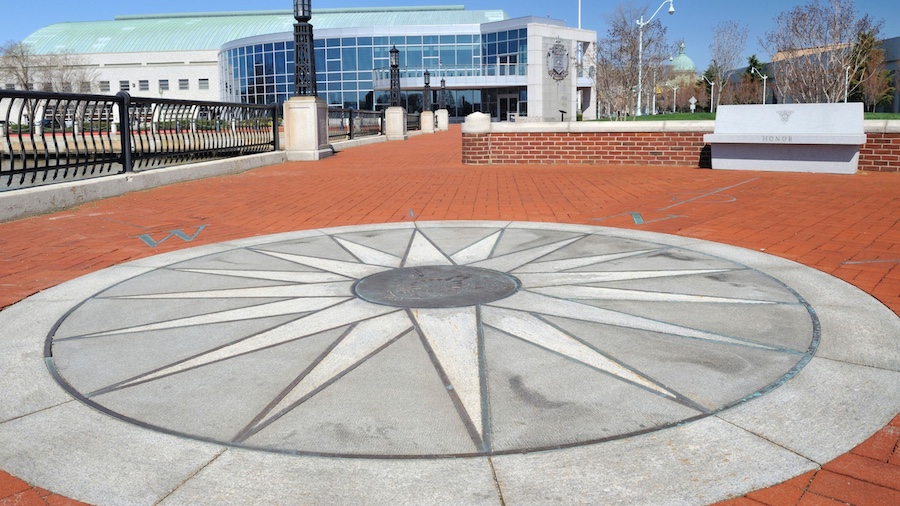The US government directly runs a number of colleges for the purpose of training officers for its military. While these schools do function in some ways like other colleges, they have a significant number of unique quirks, both in how they operate and how you have to apply to them.
In this article, we’re going to break down military academies. We’ll explain what they are, how they differ from normal colleges, how to apply to them, and whether or not they might be a good choice for you. We’ll also give you a brief introduction to each of the academies, to highlight their specialties. Let’s jump right in!
What the US Military Academies Are
The US fields a large army, and needs to get officers for that army from somewhere. To this end, they founded the military academies as a centralized location to train new officers. Each branch of the military has its own associated service academy; while they differ in the specifics of how they operate slightly, they are broadly the same.
Each functions much like a regular college; there are professors, classes, dormitories, sports teams, and all the other trappings of college life. In addition to this though, they are military-focused; all students must wake up to reveille and undertake physical exercise each morning, there are courses both practical and theoretical on what an officer needs to know, though they do offer traditional majors like regular colleges.
Finally, and most importantly, once you graduate, you automatically enter the US armed forces for a tour of duty. You are obligated to serve for five years, after which you can either stay with the military or pursue a career elsewhere. This is the entire point of the academies, but does need to be noted. If you do not want to enter the military, these are not the right schools for you.
How to Apply to the Military Academies
In general, applications to the service academies are like those to a normal college. There are a number of key differences however, both in terms of what an application requires, and how applicants are reviewed. We will cover all of these, so you know exactly what you need.
First, there is a physical fitness requirement for all of these schools. This is not overwhelming, but you do need to be in good shape to get in. There are numerous physical activities required as parts of the curriculum at these schools, and you need to show that you have the physical capacity to carry them out when you apply.
Next, you will need to be nominated by a congressman, senator, the president, or the vice president in order to apply. Your local representative is the person to contact about this; their offices receive and handle these requests all the time. We do recommend looking into this sooner rather than later; these do take time to process, even if the representative uses a form letter.
The rest of the application is akin to a standard college; they want your test scores, transcripts, and the answers to essay questions. Here they are looking for the same things all colleges are; evidence of academic merit, leadership, and a devotion to community.
Note that the US service academies are still allowed to take race into consideration when making admissions decisions. The Supreme Court created a specific exemption in their ruling on affirmative action allowing military academies to continue the practice. This is unlikely to have a major impact on your admissions odds, but it is worth noting.
Finally, there are age limits for students; you must be between 17 and 23 when you enroll.
Recruited Athletes and Blue Chips
Like other colleges, the service academies field NCAA teams, and recruit athletes to fill them. As with other schools, being an athlete of high enough caliber can increase your chances of acceptance. The military academies refer to these athletes as blue chips.
These are the same as recruited athletes at any other school, these colleges just have their own term. As with regular admissions, being a recruited athlete seriously increases your odds of acceptance. Indeed, many coaches can choose a number of blue chip athletes each year to grant acceptance to, so long as they meet all of the school’s other requirements.
Finally, students with Olympic aspirations often enjoy these academies, since they will pay for your trip to the Olympics should you qualify in your sport.
Scholarships for Military Academies
The military academies generally do not charge tuition. West Point, for example, has no tuition, and also covers room, board, and medical and dental insurance. On top of this, cadets earn a salary while attending the school. When compared to the cost of other colleges, this is a remarkable bargain.
Note that they aren’t giving you this money for nothing; these schools see students as an investment, and they get return on that investment when you join the military after graduation.
This same deal exists for the Naval Academy, the Coast Guard Academy, and the Air Force Academy. The Merchant Marine Academy covers tuition and room and board, but there are some fees associated with attending. It does have financial aid to help out with costs here for students who need it however.
An Overview of the Service Academies
There are five service academies currently; Army, Navy, Air Force, Coast Guard, and the Merchant Marines. The Space Force recruits officers from the Air Force Academy; Marines operate out of the Naval Academy. We will now give you a brief overview of each, to understand what they offer.
US Military Academy
More commonly referred to as West Point or simply Army, this is the oldest of the service academies, having been founded during the Revolutionary War. West Point offers 45 majors, and only serves undergraduates. It operates on the semester system, and has 31 core classes all students are required to complete, spread between the arts and sciences. All students graduate with a BS regardless of major, and become second lieutenants post graduation. International students are permitted.
US Naval Academy
Based in Maryland, Navy is the second oldest of the academies. Note that students at this school are referred to as midshipmen; upon graduation they either become second lieutenants in the marines or ensigns in the navy. International students are admitted, but they make up a very small portion of the class. The school offers 22 majors, and all students graduate with a BS.
US Coast Guard Academy
Based in Connecticut, the Coast Guard Academy is also partnered with Connecticut College, allowing its students to take courses there that they do not offer. The campuses of the two schools are adjacent, which helps this arrangement. Students graduate with a BS, and become ensigns thereafter. Students are required to do practical military training each summer, this is to gain practical experience in operating ships.
US Air Force Academy
Based in Colorado, Air Force is the newest of the academies, founded in 1954. It also currently houses training for the Space Force; this new service branch may or may not ever receive its own academy. All students are required to complete an extensive core curriculum, then choose from a variety of majors. All students graduate with a BS, then become second lieutenants in the Air or Space forces.
US Merchant Marine Academy
Note that merchant marines are not the same thing as marines; they are civilian mariners who sometimes contract with the government. Unlike the other service academies, you are required to fulfill your service obligation on your own by finding a job in an approved industry. Note that a number do enroll in the military, but it is not required for this academy. The point of this is to ensure there is a large pool of civilian mariners who can reinforce the navy as needed in time of war.
Are the Military Academies the Right Choice for you?
This depends on your career goals. If you are interested in serving in the military anyway, the service academies are a great way to go about doing so, while still enjoying all the perks of a college experience. Of course, military life isn’t for everyone, so that’s something to weigh carefully.
Another factor to consider is the time commitment for these academies. You aren’t just signing up for the four years you spend in the program, but for five more after that fulfilling your service requirement. This is nine years in total, nearly as long as doctors take (though medical school and military service are quite different).
Finally, many of these academies have had scandals in the past involving sexual harassment or abuse. While these are an issue at most colleges, several of these academies had significant problems in these areas. There has been work done to correct them, but it is an ongoing process. We aren’t including this to denigrate these schools, but to make sure you’re fully informed before you make a decision.
What About the ROTC?
Military academies are not the only way for college students to get involved with military life; indeed they aren’t even the most common. The Reserve Officer Training Corps (ROTC) is a collection of officer training programs embedded within colleges and universities across the country. Around 70% of new officers come from these programs.
ROTC takes place alongside your standard undergrad experience at a college, adding on the physical fitness and military training found in a military academy, while you still get to enjoy all the normal parts of a college experience. Note that service branches have their own ROTC programs, and not every college will have every service branch. Like the service academies, Marines train with Naval ROTC, and Space Force trains with Air Force ROTC.
ROTC programs often offer significant scholarships to students who participate; these often cover most or all of your tuition expenses. Like the service academy scholarships however, these are done in exchange for a guarantee of service. Graduating from an ROTC program means you are obligated to either enlist as active duty or join as a reserve officer.
ROTC is a good choice for students who are considering pursuing a career in the military, but want to experience parts of college life or majors not offered by the service academies.
Final Thoughts
The military academies are the only colleges directly run by the US government, and often rank among the best public schools in the nation. While what they offer is not the right choice for every student, their combination of funding and resources makes them appealing to many, even those who may not have considered serving in the military otherwise.
As with all colleges, applications to these schools are quite competitive, and require you to approach the process strategically. If you are looking for advice on the admissions process, or want help figuring out an application strategy, schedule a free consultation with us today. We have a long experience helping students find the best schools to meet their needs, and are always happy to hear from you.








